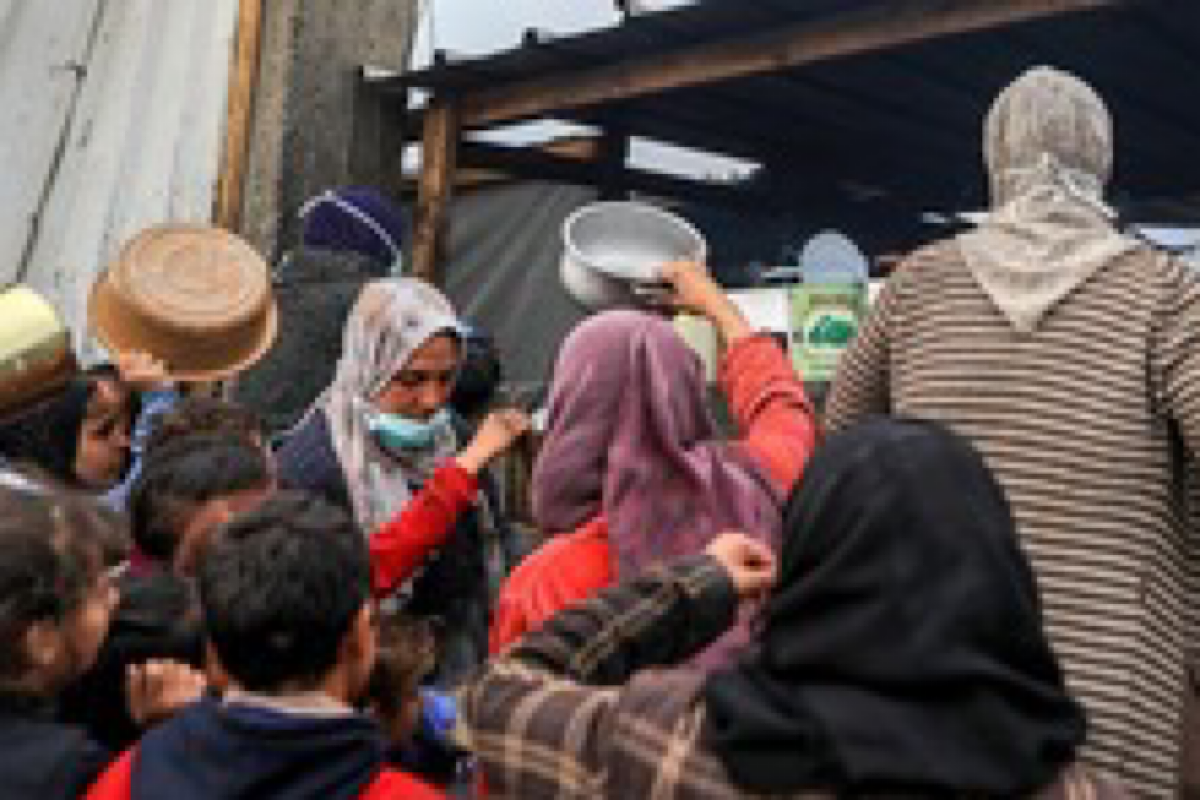Willing to help support earnest efforts for peace in Gaza, Ukraine: PM Modi
Prime Minister Narendra Modi expressed his willingness to help support earnest efforts that could lead to early restoration of peace, particularly in Gaza and Ukraine.
In the wake of the recent military conflict in Gaza, the repercussions reverberate far beyond the rubblestrewn streets and shattered lives of those caught in the crossfire.

UN expert urges Israel to end 'starvation campaign' in Gaza (Photo:IANS)
In the wake of the recent military conflict in Gaza, the repercussions reverberate far beyond the rubblestrewn streets and shattered lives of those caught in the crossfire. The war, touted by some as a strategic victory for Israel in its battle against Hamas, belies a deeper reality of uncertainty and peril, both for the region and for Israel itself. At first glance, the toll inflicted upon Hamas appears significant. Israeli officials boast of decimating thousands of Hamas fighters and crippling the group’s infrastructure. Indeed, the military campaign has left Hamas weakened and its popularity among Gazans dwindling. Yet, the narrative masks a more nuanced truth. The devastation wrought upon Gaza is not simply collateral damage.
It is a humanitarian catastrophe of staggering proportions. With thousands dead and infrastructure in ruins, the enclave resembles a dystopian wasteland rather than a functioning society. The long-term consequences of this destruction are dire, with Gaza facing the prospect of becoming an uninhabitable, lawless territory ripe for exploitation by extremists. Moreover, Israel’s military campaign has not come without costs. While casualties among Israeli soldiers have been relatively low, the toll on civilian lives and international reputation cannot be overstated. The indiscriminate bombing of civilian areas and the perceived indifference to Palestinian suffering have eroded sympathy for Israel on the world stage, fuelling condemnation and calls for accountability. Beyond the immediate human toll, the conflict has exposed deep fissures within Israeli society. Prime Minister Netanyahu’s handling of the crisis has been criticised both domestically and internationally, with accusations of recklessness and political opportunism. The erosion of trust in Mr Netanyahu’s leadership, coupled with widespread disillusionment with the government’s response to the crisis, threatens to destabilise Israel’s fragile political landscape. The fallout from the conflict extends beyond Israel’s borders, casting a shadow over regional dynamics and diplomatic relations. Arab states, once poised for normalisation with Israel, now face mounting pressure to distance themselves from a country accused of war crimes and human rights abuses.
Advertisement
The Abraham Accords, hailed as a historic breakthrough in West Asia diplomacy, now stand at risk of unravelling. In the face of these challenges, the need for a just and lasting resolution to the Israeli-Palestinian conflict has never been more urgent. Military solutions, as history has shown, only breed violence and suffering. Instead, a concerted effort towards dialogue, negotiation, and mutual recognition is essential to breaking the cycle of bloodshed and building a future of peace and prosperity for all inhabitants of the region. As the dust settles and the world grapples with the aftermath of yet another chapter in the Israeli-Palestinian saga, one thing remains abundantly clear: the status quo is untenable. It is time for bold leadership, courageous diplomacy, and unwavering commitment to the principles of justice and human rights. The path to peace may be long and arduous, but the alternative is simply too grim to contemplate.
Advertisement
Advertisement